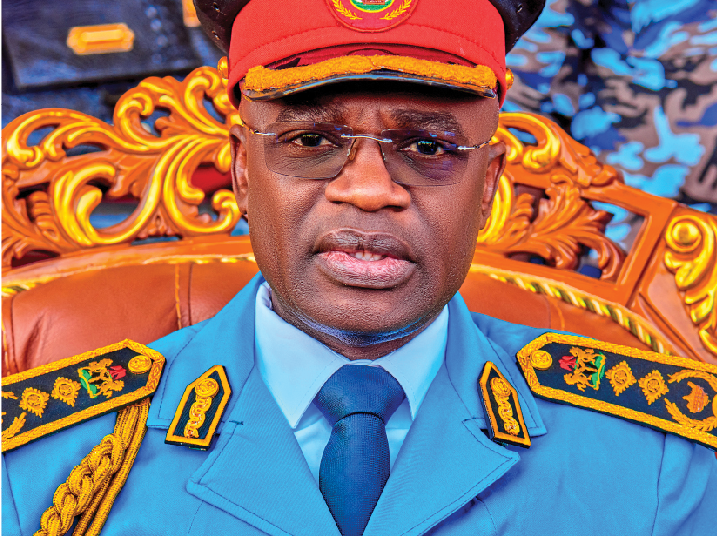The history of insecurity in Nigeria is complex and multifaceted, spanning several decades.
A brief overview reviews that Nigeria’s pre-colonial era was marked by various forms of insecurity, including but not limited to; Inter-tribal conflicts and wars, Slave raids and trade plus Banditry and cattle rustling.
The colonial era presented a new form of insecurity in Nigeria including; Resistance to colonial rule, leading to conflicts like the Egba uprising, labor unrest and strikes, Ethnic and regional tensions
After Nigeria gained independence in 1960, insecurity persisted and evolved; Nigeria began to experience Civil war between the federal government and the secessionist state of Biafra, Military coups and counter-coups, Ethnic and religious conflicts, such as the 1966 pogroms and the 1980s Maitatsine uprising including a different level of Armed robbery and banditry.
In the current democratic dispensation, between 1999 to date, insecurity in Nigeria has taken on new dimensions; Boko Haram insurgency, with attacks on civilians, schools, and government institutions, Fulani herdsmen and farmer conflicts, leading to widespread violence and displacement, Kidnapping and ransom demands, Armed banditry and cattle rustling, Militancy in the Niger Delta, Ethnic and religious tensions, such as the 2011 post-election violence.
Many school of thoughts suggest the underlying factors that have contributed to Nigeria’s insecurity to include; Weak institutions and governance, Corruption and economic inequality, Ethnic and religious divisions, Environmental degradation and resource competition, Porous borders and regional instability.
Now, in the midst of all these, Benue as a State in Nigeria has its own unique and complex history of insecurity, which can be traced back to several factors, including but not limited to youth unemployment, poverty, the inter and intra community land disputes and in the last few years the infiltration of land grabbers using herders as a front. Another phase of insecurity in Benue has political and economic twists. As long as a few ‘stakeholders’ would benefit, it didn’t matter whose blood was shed. There is another factor that is often ignored or rather overlooked by many, the local cult groups. These groups take advantage of any disagreements under whatsoever name and guise to settle their scores, which affects in the long run, lives and properties of communities. Let’s not forget the fight for mineral deposits in the state by local and foreign interests. Out of the over 43 mineral deposits in Nigeria, Benue has 34. This has become a serious challenge, especially from illegal miners of these deposits.
In the last 12 to 14 years, the state has witnessed a surge in conflicts especially between herdsmen and farmers, particularly in the Sankera axis, Kwande, Gwer West, Guma, and Agatu local government areas. These conflicts resulted in significant loss of lives, property, and livelihoods.
It is safe to say that the previous administrations in Benue State, before the coming on board of His Excellency, Rev. fr. Dr. Hyacinth Iormem Alia made some efforts to address the insecurity challenges in the state. The administration of Governor Gabriel Torwua Suswam, for instance, established the Benue State Security Council, which brought together security agencies, traditional rulers, and community leaders to discuss and address security challenges in the state. What one gathers from public opinions is that these efforts lacked the political will or depth to address these challenges. That, however, is not my area of attention in this piece.
These conflicts have no doubt left many of the Benue citizens so affected stranded. These conflicts have driven many contributors to economic growth and development to IDP camps. The conflicts have displaced many from their ancestral homes, costing them their sources of livelihoods. This indeed is and should be the concern of any well-meaning leader. It should be the focus of any committed administration. It should be the top priority of a true leader. Needless to say that His Excellency, Rev. Fr. Dr. Hyacinth Iormem Alia made this a top priority even before he took the oath of office.
The executive governor of Benue state, His Excellency, Rev. Fr. Dr. Hyacinth Iormem Alia did not leave anyone in doubt from the word go, his willingness to fight insecurity head long and return the displaced to their ancestral homes. The man has, without reservation, set out to do just that. And although It has been less than two years, everyone knows that even though Benue has not achieved total peace, we are definitely no longer where we used to be. Relative peace has returned to most of the areas that were once no-go areas and farmers are beginning to return to their farms.
The approach has been deliberate, calculated, and intentional. First of all, Governor Alia engaged his team in a deep study of the insecurity situation in Benue state. He understood like every good General, that it is not about winning the battle, it is about winning the war and like every good strategist, he knows every war is won, one battle at a time. So, understanding the root cause of the problems of insecurity in the state became paramount. This led to constant and continuous community and stakeholder meetings and engagements. The governor has met with every critical security stakeholder from the Army, the Navy, and the Airforce to the police the DSS, and civil defense. Governor Alia has continuously engaged the community leaders and stakeholders of the affected areas and regions and has, in most instances, set up peace making committees. As a result of these engagements, relative peace has returned to most of these places.
Secondly, after a deep understanding of the situation, the government demanded through constant interface with the federal government, the deployment of security agents to the vulnerable areas. This has also gone a long way in sustaining the relative peace that has been enjoyed in the state.
Thirdly, Governor Alia has constantly provided support to security agencies operating in the state, including but not limited to the provision of vehicles, equipment, and logistics.
Fourthly, to further deepen the relative peace that exists in the state and not ignoring the fact that some people may want to undermine and frustrate the efforts of the government, Governor Alia went into the communities and engaged over 5,000 gallant strong men (with a promise of 5,000 more) of their own and formed what is termed ‘the Benue State Civil Protection Guards’. This security outfit, which was inaugurated by the governor on Saturday the 14th of December 2024, was established to complement the efforts of conventional security agencies in maintaining law and order in the state. Their understanding of their terrains and their communities is a key factor in their day to day operations. This has restored some degree of sanity and calm in their territories and areas of postings.
To further deepen the peace in the state, His Excellency has launched operation ‘ANYAM NYOR’. The operation involves an unprecedented combination of security agencies, including the Army, Navy, Airforce, police, DSS, civil defense, and the Benue Civil Protection Guard. This combination has presented a new approach to talking insecurity in the state, which is already yielding huge results.
To enhance the effectiveness and real time response of the security agents and outfits, his excellency on the 14th of December 2024 deployed 600 motor bikes and 100 Hilux trucks to the different formations of the security agencies in the state. This has not happened anywhere in the state before now. This, of course, speaks to his deep commitment, like none before him and the political will to tackle insecurity in the state without reservation.
The results of these efforts have been tremendous. In Gwer West for instance, about eight (8) council wards were displaced, thirteen (13) years before governor Alia came onboard, Five (5) of those eight (8) have begun to exodusly return to their ancestral homes. Another example is the Sankera axis in the state. As a result of the peace initiative by the governor involving the traditional stools and the church, some of those responsible for unrest in that region have begun to surrender. The plan is to meaningfully engage them for fruitful contributions to their communities. All of these efforts and more are to ensure peace in Benue state to guarantee the safe and permanent return of IDPs to their ancestral homes.
To guarantee the permanent return of IDPs to their ancestral homes, which has been the utmost and burning desire and passion of His Excellency, Rev. Fr. Dr, Hyacinth Iormem Alia, the governor on January 25th, 2025, launched the Benue State Action Plan for Durable Solutions. This action plan aims to provide lasting solutions for internally displaced persons (IDPs) in Benue state, with a focus on safe return to their ancestral homes. The governor believes, and he says time and again that it is not just about returning home, its to return safely and permanently. The Benue state durable solutions are adjudged by the United Nations as the best and, as a matter of fact, has made it an effective solution plan to be populated by different regions of the world.
The durable solutions, in summary, are a master stroke with three main components of security, social amenities, and permanent housing. To provide adequate and guaranteed security in the state, then restore the destroyed social amenities like hospitals, schools and police stations in the affected places, and finally, provide affordable and durable housing for the IDPs to return to their ancestral homes.
So clearly, His excellency has his eyes on the ball and is not distracted by anything or anyone. Rather, he has clearly studied the challenges of insecurity in the state and brought out a master piece that will guarantee the safe and permanent return of all Internally Displaced Persons (IDPs) to their ancestral homes.
Overall, while the insecurity challenges in Benue State are complex and multifaceted, the state government under the visionary, calculated, focused, and dedicated leadership of His Excellency, Rev. Fr. Dr Hyacinth Iormem Alia has and is making giant efforts to address them. And even though we are not yet where we want to be, we are certainly no longer where we were and the governor is surely winning the war on insecurity in the state, one battle at a time.
– Solomon Iorpev, Technical adviser to the Benue State Governor on media, publicity and Strategic communication





